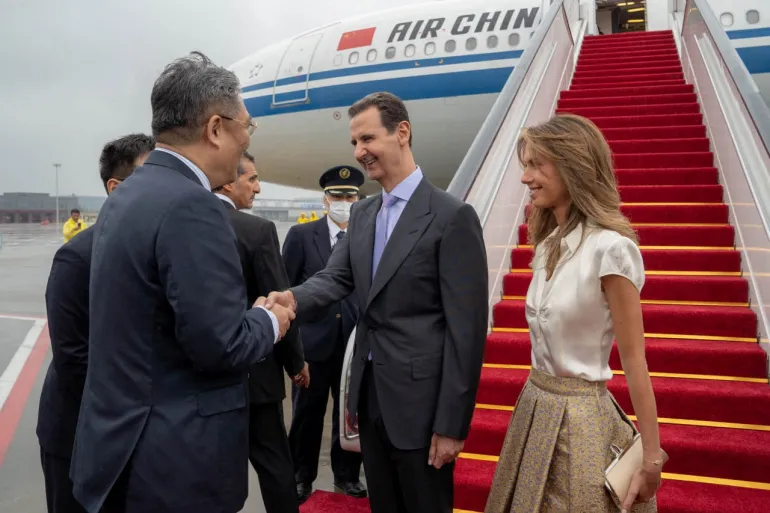Strategic Syria-China Partnership Formed During Al-Assad’s Visit to Hangzhou
China’s pledge to assist in rebuilding Syria is a major diplomatic breakthrough that could be a game-changer for the war-torn country. Syrian President Bashar al-Assad made the announcement while in Hangzhou, China, on Friday, during his meeting with Chinese President Xi Jinping.
Key Elements of the Syria-China Partnership
Following the summit, the two countries established a strategic cooperation, with China providing significant assistance for Syria’s reconstruction. China’s readiness to cooperate with Syria was underlined by President Xi, who also denounced “foreign interference” and “unilateral bullying.”
Belt and Road Initiative Integration Strengthens the Partnership
China’s ambitious Belt and Road Initiative (BRI) will serve as the conduit for its support. President Xi presented plans to integrate Syria into this international framework by bolstering infrastructure development along the ancient Silk Road routes. This partnership seeks to strengthen bilateral economic cooperation while advancing regional and global development.
Breaking International Isolation with the Syria-China Partnership
In its attempts to lift more than ten years of diplomatic isolation brought on by Western sanctions, Syria views this alliance as a major victory. Al-Assad’s rare diplomatic trip to China reflects his government’s efforts to forge closer economic connections with the second-biggest economy in the world. Syria now has a new way to get around long-standing political and economic pressure from Western countries because to its alliance with China.
Context of Syrian Conflict
The diplomatic overture comes against the backdrop of Syria’s devastating civil war, which began in 2011 and has resulted in:
- Hundreds of thousands of casualties
- Millions of displaced citizens
- Widespread infrastructure destruction
- Severe economic challenges under Western sanctions
The Syria-China partnership has emerged as a beacon of hope for the country’s reconstruction, offering a pathway to economic revival and international reintegration.
Regional Diplomatic Shifts Amplify the Partnership
Recent diplomatic advancements in the area are strengthened by this strategic alliance. Several Arab neighbors that had backed Syrian rebel groups have re-established ties with al-Assad’s administration. China’s assistance comes after Beijing successfully mediated an agreement between Saudi Arabia and Iran in March, resolving their seven-year diplomatic dispute. These changes highlight a new age of regional diplomacy in which China’s power keeps expanding.
China’s Growing Middle East Influence through the Syria-China Partnership
China’s growing influence in Middle Eastern politics is highlighted by its most recent diplomatic move. Beijing’s strategy shows its increasing confidence in influencing international diplomatic ties by positioning itself as an alternative to the US-led world order. China’s geopolitical aspirations in the Middle East and its dedication to growing the Belt and Road Initiative are exemplified by the collaboration between Syria and China.
Future Implications of the Syria-China Partnership
The collaboration might signal the start of large Chinese investments in Syria’s rehabilitation, which might tip the scales of global power in the area. It is a symbol of hope for Syria’s infrastructure reconstruction and economic resurgence. It helps China achieve its strategic goals along the Belt and Road Initiative and in the Middle East.
The world community will be keenly monitoring the development of this cooperation as both countries proceed with this strategic alliance. Redefining global power relations, changing regional dynamics, and serving as a model for cooperative reconstruction efforts in post-conflict situations are all possible outcomes of the Syria-China collaboration.

